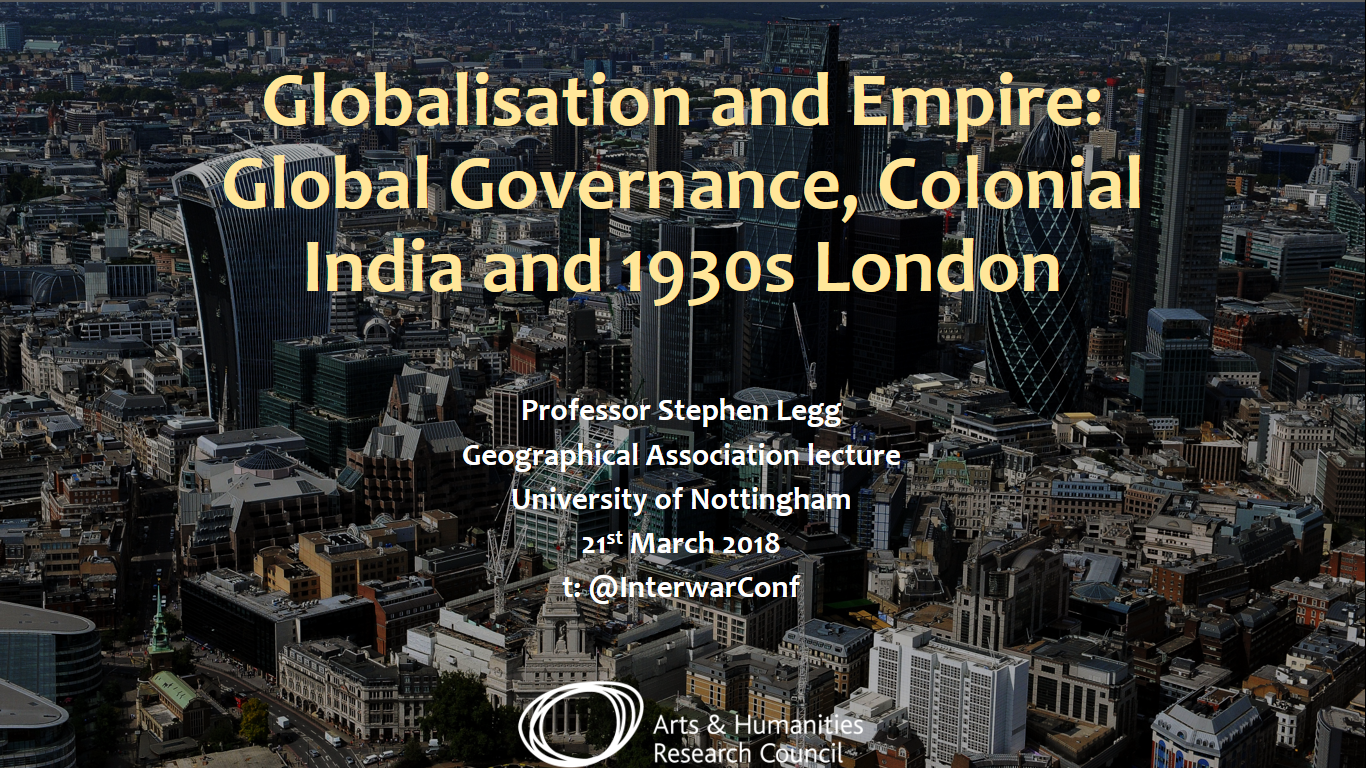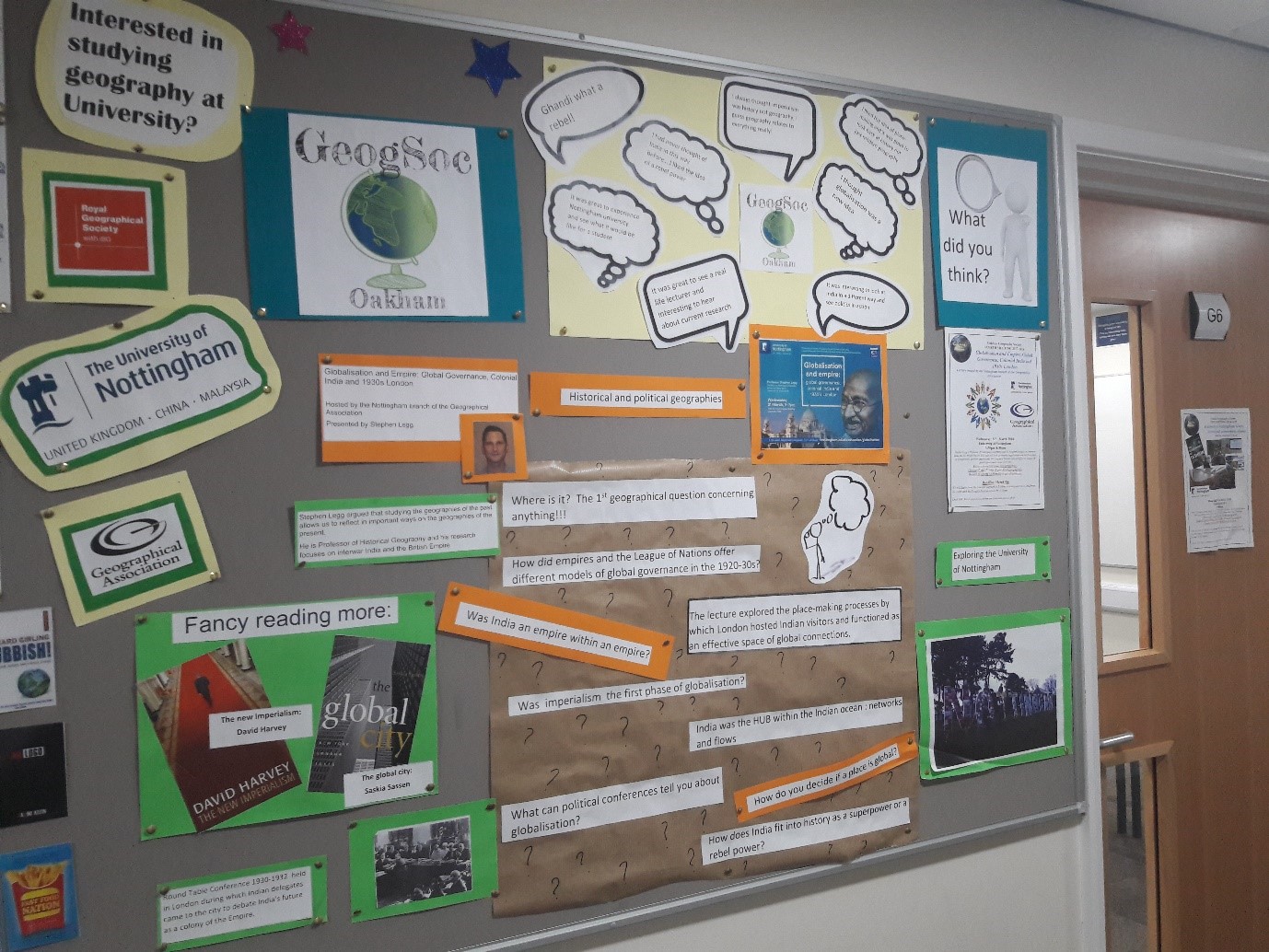
July 1, 2018, by Stephen Legg
International Conferences and Geographical Education
The interwar conferences at the heart of our project all aimed to increase geographical education. The International Studies Conferences of the League of Nations explicitly sought to produce teaching materials that would foster in future generations an interest in distant places, and in global peace. The Pan-African Congresses contributed to the building up of encyclopaedic knowledge about the geography of Africa and its history, seeking to educate the African diaspora about their racial heartland. And the Round Table Conference was the site of pitched publicity battles between Indian and British delegates who sought to depict India either as an inherent and irremovable part of the British Empire or as a future independent state.
But what educational role do these conference have now? One role is to provide us with character studies that provide insights into the debates, characters and geographies of the time (see Jake Hodder’s Black History Month work on Marcus Garvey). Another is to think about what geographical lessons conferences might teach us through what they did and how they did it. This is at the core of our methodology, trying to examine how conferences worked, in what ways they threaded together the international, and how they resolved the tensions that resulted from these threadings.
With this in mind I delivered a lecture for Nottingham’s branch of the Geographical Association, on 21st March 2018. The branch was established in October 2016 as a forum for local teachers and as a means of bringing these teachers (and their students) into better contact with the university. The lectures attract c.150 teachers, students and members of the general public and present an opportunity for academics to present their research to a wider audience.
The title for my lecture was “Globalisation and Empire: Global Governance, Colonial India and 1930s London”. This framing emerged from conversations with Dr Mary Biddulph, a University of Nottingham Lecturer in Geography Education, regarding recently revised A’Level Geography curricula. Anticipating our interests in the power politics of internationalism, various exam boards now teach students about: globalisation, superpowers, and migration, identity and sovereignty (EdExcel); global governance, change and structures (Eduqas); global connections (OCR); and global systems and global governance (AQA). Mirroring our interest in the role of city localities in determining conference proceedings, students also learn about: regenerating places and diverse places (EdExcel); changing spaces and making places (OCR); and changing places (AQA).
These two learning objectives lack two components, however, which are at the core of our interests. Firstly, their examples tend to be almost entirely contemporary. Second, “global governance” and “making places” tend to be taught separately. In my lecture I attempted to make the case for thinking about both processes through their historical geographies, and for looking at the intersection of the global (and its governance) and the local (and its making). The feedback from staff and students afterwards was positive, and the latter delivered some cracking questions (although I very much failed to have a convincing answer to the dilemma of India’s future role, or not, in the UN Security Council!)
A fortnight later I presented a shortened version of the lecture at the Geographical Association’s Annual Conference at Sheffield Hallam University. The audience was mostly made up of geography teachers and education professionals. It was interesting to hear from teachers on the International Baccalaureate, who taught both history and geography but had not considered how historical topics covered might be used to impart greater understanding of geographical phenomena. I hope to continue to work with teachers and students to think about how we can make our materials accessible for education, and how we can incorporate school and college staff and students into this process. At a Nottingham Branch GA meeting on 24th May it was great to talk to teachers from Bilborough College and Oakham School about their student responses to the lecture, and to plan future interactions, building upon self-generated reflections on the lecture (see below). More to follow!
No comments yet, fill out a comment to be the first


Leave a Reply